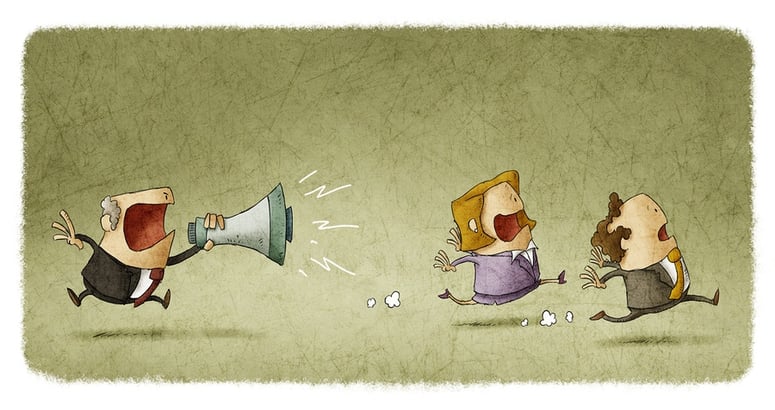 As a leader, you are tasked with balancing a great deal. Your company must be profitable, robust and innovative and your teams must be happy, engaged and productive. So how do you really coach in an environment where measurable success is critical? What do you do when an employee makes a mistake or isn’t performing well?
As a leader, you are tasked with balancing a great deal. Your company must be profitable, robust and innovative and your teams must be happy, engaged and productive. So how do you really coach in an environment where measurable success is critical? What do you do when an employee makes a mistake or isn’t performing well?
Mistakes and poor performance will cause frustration for anyone. As a leader, these mistakes can cost a customer relationship or add significant work to one’s already overflowing plate. So anger, irritation and disappointment are normal when someone you rely on drops the ball.
If you go with your first impulse, you might opt to angrily reprimand the employee. Why is this the go to for many leaders and managers? I guess the hope is that you can teach a lesson to the employee in question through negative reinforcement. But research tells us that negative reinforcement isn’t very effective. So maybe by chewing someone out you can keep other team members on their toes? Again, research shows that seeing a manager react this way makes employees see you as less effective. Then the only thing that really comes from this kind of action is it can discharge and relieve some of our own stress and frustration. That is a fairly temporary benefit with some pretty significant long-term consequences.
Seeing our leaders get angry and frustrated erodes loyalty and trust. Yes, we all lose it now and then so we are really talking about patterns of handling mistakes and performances issues. When we get visibly angry or vent our frustration directly at others, we as leaders block creativity, kill innovation, squelch experimentation and stall learning. If they fear us, employees become unwilling to risk making mistakes. These kinds of reactions result in a great deal of CYA and blame shifting as people try to avoid our attention.
The reality is that our people are a critical component of achieving our vision, we need their trust and loyalty to make it happen. So what should we do in these instances? In some cases, there must be consequences, but these should be delivered with respect and even kindness when you are emotionally calm. Studies have demonstrated that showing compassion and kindness can result in employees seeing us as strong, level headed and effective. Compassion actually increases our willingness to trust and follow.
When you lead a team or teams, you have to expect mistakes and a sometimes steep learning curve. If you pause before you respond, you can control your emotional response and direct positive action. Don’t pretend you’re not upset but you can use phrases like, “I’d like to think about this before I respond,” to allow yourself time to cool down and consider the best path of action.
When you are faced with a mistake or performance issue, it can help to consider the three C’s: compassion, curiosity and coaching. Compassion literally means “suffering together,” it is the understanding that we all make mistakes and as fellow team members we share the suffering. Then we approach the issue with Curiosity, what happened, why did it happen and how can we prevent it from happening again? Then the Coaching comes in to help us get the outcomes we want and move everyone forward, ever closer to our vision.

